Introduction to best dog food for French bulldogs
People know French Bulldogs for their unique personalities and affectionate nature. Many households love their pets like family members. It’s crucial to ensure they get the best nutrition. This supports their health and well-being. One of the most important factors in keeping the best dog food for French bulldogs healthy is giving them a balanced diet. The diet must fit their specific needs.
They are a charming and beloved breed. They are often called “Frenchies.” Their distinctive bat-like ears, smushed faces, and friendly demeanor have made them known. These dogs originated in England but became very popular in France. They have become one of the most sought-after companion dogs worldwide.
French Bulldogs are sturdy and small. They weigh 16 to 28 pounds and stand 11 to 12 inches tall. Their coat comes in many colors. These include brindle, fawn, cream, and pied (a mix of white with any of the other colors). Despite their small size, Frenchies have a muscular frame. This gives them an endearing, firm look.
French Bulldogs have a distinctive feature. It is their adorable face. Their flat, wrinkled faces and pushed-in noses give them their unique charm. These traits are known as brachycephalic. Yet, these traits have downsides. They can cause health issues like breathing problems and heat sensitivity. This makes it crucial for owners to care about their environment and well-being.
Beyond their physical characteristics, French bulldogs are renowned for their delightful personalities. They are loving, social, and adaptable. They make them ideal for people and families. Frenchies thrive on human interaction. They are known to form strong bonds with their owners. They often seek out affection and companionship.
Despite their affectionate nature, French bulldogs also own a playful and mischievous streak. They enjoy interactive play. They are known for their comical antics. These antics can entertain their owners. But they are not high-energy dogs. This makes them good for apartments. It also suits people with less active lives.
Understanding the Nutritional Needs of French Bulldogs

French bulldogs have adorable looks and a loving demeanor. They need special nutrition to stay healthy. Good nutrition is crucial. It helps dogs keep their energy up. It supports their growth and prevents common health issues for the breed. Understanding the nutritional needs of French Bulldogs is essential for responsible pet ownership. In this guide, we’ll explore the key aspects of feeding French Bulldogs. It will help you provide the best nutrition for your furry friend.
First, French bulldogs tend to gain weight. So, it’s imperative to control portions and feed a balanced diet. A diet rich in high-quality protein is essential for muscle development and maintenance. Look for dog foods for small breeds. Look for foods tailored to French bulldogs. These diets have a good ratio of protein, fat, and carbs. They support your Frenchie’s active lifestyle without causing too much weight gain.
When choosing a commercial dog food for your French Bulldog, you must read the ingredients. Opt for products that list real meat as the primary ingredient, such as chicken, beef, or fish. Avoid dog foods with fillers, artificial additives, and by-products. These can cause digestive issues and allergies in sensitive Frenchies.
Don’t rely on commercial dog food. Add fresh, whole foods to your French Bulldog’s diet. This can provide key nutrients and variety. Cooked lean meats, like chicken or turkey, are great. So are fruits and vegetables, like carrots, apples, and green beans. They can be excellent additions to your Frenchie’s meals. But, it’s vital to avoid feeding your dog foods that are toxic to dogs. These include grapes, onions, and chocolate.
Proper hydration is also vital for French bulldogs. They are prone to heat sensitivity and dehydration. Always ensure your Frenchie has clean, fresh water. This is important all day, especially when it’s hot or after exercise.
Consult your veterinarian first. Do this to set a feeding schedule and check your French Bulldog’s weight and health. Your vet can give personalized recommendations. They will be based on your Frenchie’s age, activity level, and any health concerns.
Understanding the nutritional needs of French bulldogs is vital. It helps promote their health and longevity. Feed your Frenchie a balanced diet with fresh foods and proper hydration. This will help them thrive. They will enjoy a happy, healthy life by your side.
Factors to Consider When Choosing Dog Food
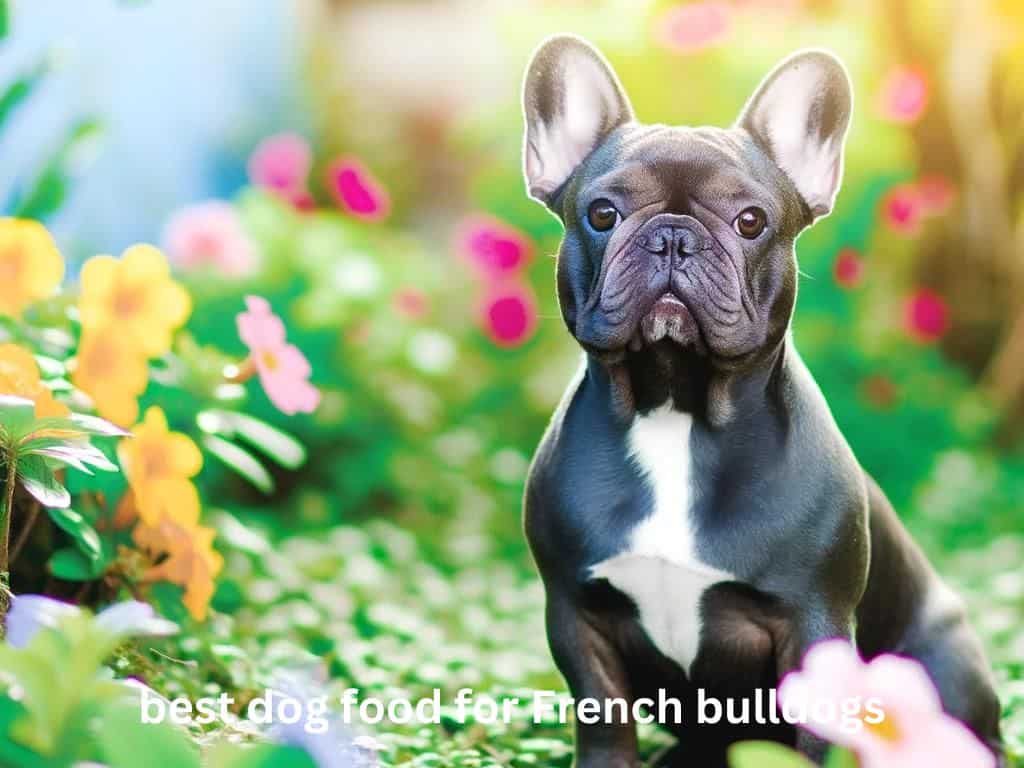
Ingredients: Opt for dog foods made with high-quality, real ingredients. Look for products that list meat as the primary ingredient, such as chicken, beef, or fish. Avoid foods with fillers, artificial additives, and by-products. These may not provide good nutrition for your dog.
Nutritional Balance:
Make sure the dog food has a balanced mix of protein, fat, carbs, vitamins, and minerals. Dogs at different life stages and activity levels have varying nutritional needs. So, choose a formula that matches your dog’s age, size, and activity level.
Special Dietary Needs:
Consider any specific dietary requirements or sensitivities your dog may have. Some dogs may like grain-free diets. Others may need formulas to address allergies, digestion issues, or weight.
Life Stage Appropriateness:
Select a dog food formulated for your dog’s life stage, whether they’re a puppy, adult, or senior. Each life stage has unique nutritional needs. The right formula can support your dog’s growth, development, and health.
Brand Reputation and Quality:
Choose dog food brands with a reputation for producing high-quality, safe products. Research the brand’s manufacturing and sourcing. Also, look for any recalls or controversies. This will ensure you’re choosing a trustworthy option for your dog.
Consult with a Veterinarian:
Seek guidance from your veterinarian when choosing dog food. Your vet can give personalized recommendations. They will base them on your dog’s health history, breed, and any health concerns.
Consider these factors. Make informed decisions. Then, you can pick dog food that promotes your furry friend’s health, energy, and long life. Remember to check your dog’s response to the food. Adjust as needed to ensure they thrive on their chosen diet.
Top Considerations for French Bulldog Diets.

French Bulldogs have unique dietary needs and tendencies. They need special attention in their diets. Proper nutrition is crucial for maintaining their health, energy levels, and well-being. Here are some top considerations to keep in mind when planning a diet for your French Bulldog:
Protein-Rich Diet:
French Bulldogs thrive on a diet rich in high-quality protein. Look for dog foods that list real meat as the primary ingredient, such as chicken, beef, or fish. Protein is essential for muscle development, maintenance, and health in Frenchies.
Limited Ingredients:
French Bulldogs have sensitive stomachs. They may enjoy diets with few ingredients. Avoid foods with fillers, fake additives, and by-products. These may cause digestive issues or allergies in your Frenchie.
Grain-Free Options:
Some French Bulldogs may have grain sensitivities. These can cause digestive or skin issues. Consider grain-free dog foods. Or, consider formulas with digestible grains, like rice or oats, to lower the risk of adverse reactions.
Balanced Nutrition:
Ensure your Frenchie’s diet has a balanced mix of protein, fat, carbs, vitamins, and minerals. Life stages and activity levels may need different nutrition. Choose a formula that meets your Frenchie’s needs.
Weight Management:
French Bulldogs tend to gain weight. So, checking their calorie intake and keeping a healthy weight is essential. Choose dog foods made for weight management. Or, ask your vet for personalized feeding advice.
Hydration:
French Bulldogs need water. They are prone to heat sensitivity. Make sure your Frenchie has clean water at all times. Also, add wet food or water to dry kibble to add moisture.making big changes to your Frenchie’s diet. Your vet can offer personalized recommendations. They are based on your dog’s health history, breed, and specific dietary needs or concerns.
Consider these top points Give your French Bulldog a good diet. This will help ensure they live a happy, healthy life full of energy.
Best Dog Food Brands for French Bulldogs

Pick a reputable brand when choosing the best dog food for French Bulldogs. It should be known for making high-quality, nutritious products. Here are some top dog food brands that cater to the unique dietary needs of Frenchies:
Royal canin
Royal Canin offers breed-specific formulas. We tailor them to meet the nutritional needs of French Bulldogs. They design their formulas to support digestion. They also help maintain a healthy weight and promote skin and coat health.
Blue Buffalo
Blue Buffalo offers many natural dog food options. Real meat, fruits, and vegetables make them. Their formulas are free of artificial additives and by-products. They are suitable for French Bulldogs with sensitivities or allergies.
Wellness
Wellness offers holistic dog food formulas. Crafted with premium ingredients, they support health and well-being. Their small breed formulas are ideal for French Bulldogs. They provide balanced nutrition and essential vitamins and minerals.
Merrick
Merrick offers grain-free and limited-ingredient dog food options. They are suitable for French bulldogs with dietary sensitivities. Their recipes feature real meat as the main ingredient. They also include wholesome fruits, vegetables, and grains.
Orijen
Orijen is famous for its good dog food. It’s made with fresh, local ingredients. Their high-protein recipes mimic a dog’s natural diet. They provide French Bulldogs with key nutrients and energy for good health.
When picking dog food for your French Bulldog, consider their diet, likes, and health issues. Talking to your veterinarian can also provide helpful advice. It can help you choose the best food for your Frenchie’s needs. With the proper nutrition from a trusted brand, you can keep your French Bulldog at a healthy weight. They will have vibrant energy and well-being.
Home made Diet Options for French Bulldogs
When feeding your French Bulldog, homemade diets can be significant. They offer better nutrition than commercial dog food. Here are some homemade diet options for your Frenchie. They are both nutritious and delicious.
Cooked Meat
Lean meats, like chicken, turkey, beef, and fish, have lots of protein. They are excellent for French Bulldogs. Cooked meats should be the central part of your Frenchie’s homemade diet. They provide amino acids for muscle growth and health.
Vegetables
You added vegetables, such as carrots, green beans, peas, and sweet potatoes, to your Frenchie’s diet. They can give critical Cook or steamed vegetables to improve digestibility for your furry friend.
Fruits
are suitable for your Frenchie’s meals. They include apples, bananas, berries, and melons. You can add them as a tasty and nutritious treat. Yet, fruits should be fed in moderation due to their natural sugar content.
Whole Grains
Brown rice, quinoa, and oats are excellent sources of carbs and fiber. They are great for French Bulldogs. Whole grains can provide sustained energy. They also support digestive health when included in your Frenchie’s homemade diet.
Supplements
Consider adding supplements to ensure your Frenchie gets all the nutrients they need. These include fish oil for omega-3, calcium for bones, and probiotics for digestion.
When cooking for your French Bulldog, you must make a balanced diet. It should meet their needs.
Talk to your vet to make a homemade diet for your Frenchie. It will fit their specific diet and health needs. With proper planning and prep, homemade diets can be a healthy choice. They can also be satisfying for your beloved French Bulldog.
Transitioning Your French Bulldog to a New Diet.
It would be best to transition your French Bulldog to a new diet. This will take careful planning and patience. Your furry friend needs them to ensure a smooth transition and good nutrition. Here are some steps to help you transition your French Bulldog to a new diet:
Gradual Transition:
Start by introducing the new diet while reducing the old one. Mix a bit of the latest food with your Frenchie’s current food. Increase the amount of new food over 7-10 days.
Check response:
Pay close attention to your French Bulldog. Watch its response to the new diet during the transition. Look for any signs of digestive upset, such as diarrhea, vomiting, or changes in appetite. If you notice any bad reactions, slow the transition. Or, consult your vet for guidance.
Maintain Consistency:
Consistency is critical when transitioning your French Bulldog to a new diet. Stick to a regular feeding schedule. Avoid sudden changes in the type or amount of food.
Stay Hydrated:
Ensure your Frenchie has clean, fresh water at all times. This is especially true during the transition. Proper hydration is essential for supporting digestion and health.
Patience and Persistence:
Transitioning your French Bulldog to a new diet may take time, so be patient and persistent. Every dog is different. So, adjust the transition process based on your Frenchie’s needs and response.
You can ensure a smooth transition by following these steps and changing your French Bulldog’s diet. It will give your furry friend the nutrition they need for health and well-being.
Monitoring Digestive Health
Check your French Bulldog’s digestion during the transition. Do so again afterward to ensure they adjust to the new diet. Look out for any signs of gastrointestinal discomfort or allergic reactions.
Common Mistakes to Avoid:
Avoid common mistakes when caring for your French Bulldog. These include overfeeding, feeding low-quality food, neglecting portion control, skipping regular exercise, and ignoring signs of health issues. Stay attentive to your Frenchie’s needs. Consult a vet for guidance on care.
Overfeeding
French Bulldogs tend to gain weight. So, it’s crucial to measure their food and avoid overfeeding. This prevents obesity and related health issues.
Ignoring Allergies and Sensitivities
Ignoring allergies and sensitivities in your French Bulldog can lead to discomfort. It can also lead to health issues. Watch for signs of food or environmental allergies. These include itching, redness, or digestive upset. Talk to your vet to find triggers. Then, adjust your Frenchie’s diet or lifestyle.
Inadequate Hydration
Make sure your French Bulldog has fresh, clean water at all times. This prevents dehydration and supports health and digestion.
More Tips for Maintaining a Healthy Diet.
Maintaining a healthy diet is essential for the well-being of your French Bulldog. In addition to picking the right food and changing to a new diet, here are more tips. They will help keep your Frenchie’s diet nutritious and balanced:
Portion Control:
Be mindful of part sizes to prevent overfeeding and weight gain in your French Bulldog. Follow the feeding guidelines from the dog food maker. Or, ask your vet for personalized advice. It will be based on your Frenchie’s age, weight, and activity level.
Regular Exercise:
Add regular exercise to your Frenchie’s routine. It supports their health and keeps them at a healthy weight. Daily walks, play sessions, and toys can help keep your French Bulldog active. They also keep them engaged.
Limit Treats:
While treats can be a fun and rewarding part of your Frenchie’s diet, they must be used in moderation. Avoid high-calorie treats. Choose healthier options. These include fresh fruits, vegetables, and small pieces of lean meat.
Monitor Weight and Body Condition:
Keep an eye on your French Bulldog’s weight and body condition. This will ensure they’re healthy. Weigh your Frenchie. Then, assess their body condition using visual and tactile cues. Adjust their diet and exercise regimen to keep them in optimal shape.
Regular Veterinary Check-ups:
Schedule regular veterinary check-ups. They will check your French Bulldog’s health and address any dietary or health issues. Your vet can advise on diet, weight, and any special needs your Frenchie has.
Add these tips to your Frenchie’s care routine. They will help keep a healthy diet and promote their well-being for years.
Choosing the right dog food is essential. It ensures your furry friend’s health and well-being. Many options are available on the market. You must consider several factors to make a good decision. Here are some key factors to keep in mind when selecting dog food:
FAQs
Can I feed my French Bulldog human food?
It’s best to avoid feeding your French Bulldog human food. It may lack the necessary nutrients and could cause digestive issues or allergies.
How often should I feed my French Bulldog?
Most adult French Bulldogs should be fed twice a day. Puppies may need to eat more.
Are there any specific foods I should avoid feeding my French Bulldog?
Certain foods like chocolate, grapes, and onions are toxic to dogs and should be avoided. Additionally, foods high in fat or salt should be limited.
Should I consult a veterinarian before changing my French Bulldog’s diet?
Yes, you should consult a vet before significantly changing your French Bulldog’s diet. This will ensure it meets their specific nutritional needs.
How can I tell if my French Bulldog is allergic to their food?
French Bulldogs may show signs of food allergies. These might include itching, ear infections, upset stomach, or skin rashes. If you suspect your dog has food allergies, ask your vet for guidance.
Conclusion
Choosing the best dog food for French Bulldogs is crucial. It can impact their health and well-being. Understand their unique diets. Choose high-quality, balanced nutrition. This will ensure your French Bulldog leads a happy, healthy life.

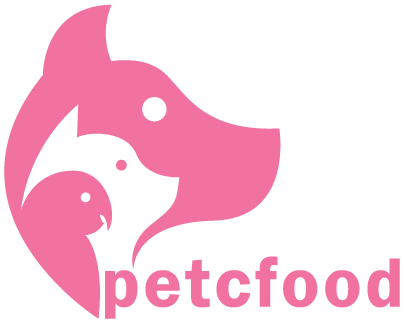
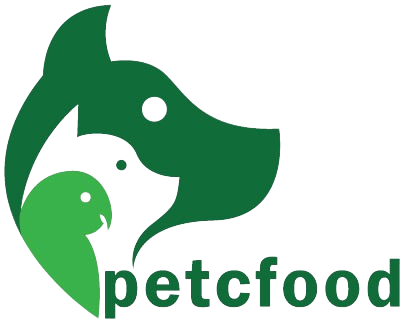








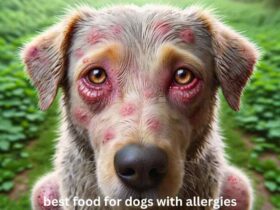

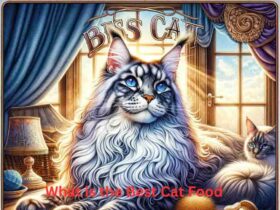

Leave a Review